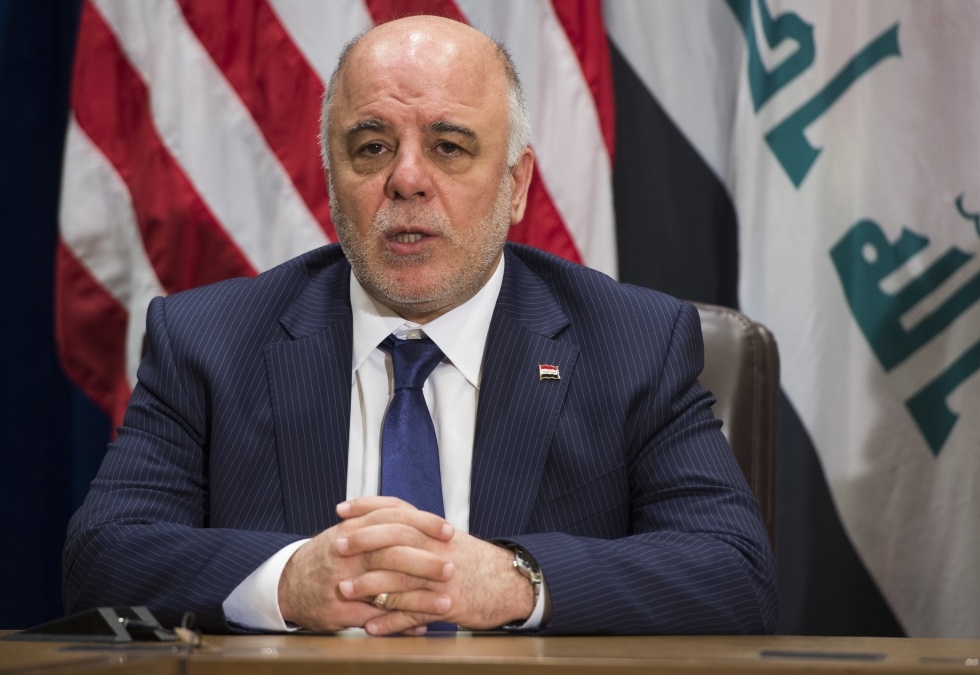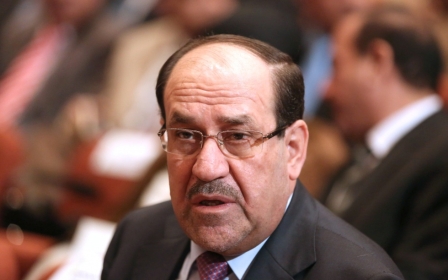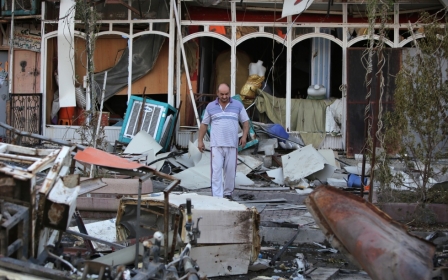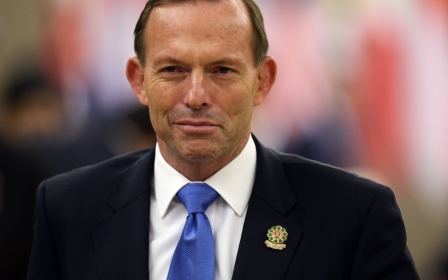Iraq PM calls for 'tribal revolution' against IS

Iraqi Prime Minister Haider al-Abadi called Monday for a "tribal revolution" against the Islamic State group, in a sign of the importance Baghdad places on tribal resistance against the militants.
In a meeting with Suhaib al-Rawi, the newly elected governor of embattled Anbar province, Abadi "stressed the need for a tribal revolution to rid the body of Iraqi society of this foreign enemy", the premier's office said.
He emphasised "the importance of the tribes and the sons of the province taking part in liberating their areas from the terrorist organisations".
IS spearheaded a sweeping militant offensive last year that overran large parts of Iraq, including significant territory in Anbar which stretches from the borders with Syria, Jordan and Saudi Arabia to the western approach to Baghdad.
The support of Iraq's powerful Sunni tribes is seen as essential to defeating IS, and tribal fighters have played a key role in keeping the militants from gaining further ground in Anbar.
Iraqi security forces wilted under the initial IS onslaught last June, but are now backed by US-led air strikes, international advisers, Shiite militiamen and Sunni tribes, and have begun to claw back some areas.
IS mortars target US troops in Iraqi base in Anbar
An Iraqi military base in the country's western Anbar province is coming under frequent mortar fire from IS, but the attacks have caused no injuries to US troops deployed there, the Pentagon said Monday.
The mortar attacks -- which began in recent weeks -- underline the risks of an expanding role for the US military in Iraq, as hundreds of American troops deploy to train and advise the Iraqi army in its fight with the IS group.
About 320 troops -- mostly US Marines -- started working with Iraqi army units in recent days at the sprawling al-Asad base, which officials insisted was facing no imminent threat from the IS militants.
"It's fair to say al-Asad is coming under... regular harassment fires," spokesman Colonel Steven Warren told reporters.
The mortar and other indirect fire has been "wholly ineffective" so far, Warren said. "No US personnel, no US equipment have been impacted in any way."
It was the first time the Pentagon reported the mortar fire, which began "over the past few weeks," a US defense official told AFP.
US warplanes have carried out a steady stream of air raids near the Asad base against the IS militants, who have gained a firm foothold in the west. Anbar province is home to a mostly Sunni population that has become alienated from the Shiite-led government in Baghdad.
American commanders have described the military training as focused on "bare minimum basics" for the Iraqi soldiers. The instruction covers several topics, including coordinating air strikes from Iraqi or coalition planes, Warren said.
Increasing US footprint
President Barack Obama plans to send up to 3,100 US troops to Iraq to help build up the Baghdad government's army in its fight with the IS group. But Obama has ruled out a direct combat mission for the American forces.
About 2,140 US troops are currently on the ground in Iraq, including the team at the Asad base -- one of five sites chosen for training efforts.
About 170 troops from the US Army's 1st Infantry Division have deployed to Taji, a vast base north of Baghdad. The training effort at Taji, which involves a six-week program for four Iraqi army battalions, began on December 27, according to Warren.
In the coming weeks, two other training sites will be launched by the US-led coalition, one in Arbil in the north and another in Besmaya, south of Baghdad.
The American troop contingent in Iraq also includes 800 forces guarding American diplomats and facilities.
Suicide bombings, clashes kill 23 in Anbar
Two suicide bombings followed by clashes in Anbar province killed 23 security personnel on Tuesday, officers and a doctor said.
The suicide bombers attacked a mosque in the Al-Jubba area of Anbar where anti-IS fighters were resting, killing 10, after which clashes broke out that left a further 13 security personnel dead and 21 wounded.
Al-Jubba is located near the Asad Air Base and the town of Baghdadi, an area that has seen heavy fighting between security forces and IS.
There was no immediate claim of responsibility for the attack.
Shiite militia leader: Iran saved Iraqi government
An Iraqi Shiite militia leader and lawmaker has credited Tehran and a powerful Iranian general with saving the Baghdad government during last summer's offensive by IS.
Hadi al-Ameri, a former minister who commands the Badr militia, said support from Iran and General Qassem Suleimani had been crucial after Iraqi government forces collapsed in the face of the IS assault.
"If it were not for the cooperation of the Islamic republic of Iran and General Suleimani, we would not today have a government headed by Haider al-Abadi in Baghdad," Ameri told a memorial service south of Tehran Monday for an Iranian officer killed in Iraq last month.
"It would not have existed," he said of the Iraqi government, according to the Isna and Fars news agencies.
The memorial was for Iranian Revolutionary Guards Major General Hamid Taghavi, killed by IS fighters in the Iraqi city of Samarra last month.
Suleimani, the commander of Iran's Quds Force -- the foreign wing of the Revolutionary Guards -- was also present at the memorial.
The general has become the public face of Iran's deep military involvement in Iraq.
But Tehran has consistently denied having troops on the ground.
New MEE newsletter: Jerusalem Dispatch
Sign up to get the latest insights and analysis on Israel-Palestine, alongside Turkey Unpacked and other MEE newsletters
Middle East Eye delivers independent and unrivalled coverage and analysis of the Middle East, North Africa and beyond. To learn more about republishing this content and the associated fees, please fill out this form. More about MEE can be found here.




